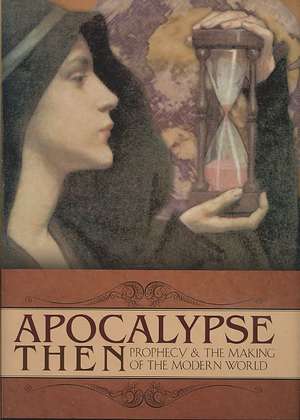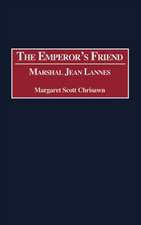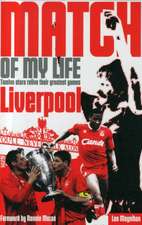Apocalypse Then: Prophecy and the Making of the Modern World: Praeger Series on the Early Modern World
Autor Arthur Williamsonen Limba Engleză Hardback – 29 mar 2008 – vârsta până la 17 ani
Preț: 360.28 lei
Preț vechi: 417.72 lei
-14% Nou
Puncte Express: 540
Preț estimativ în valută:
68.95€ • 71.57$ • 57.49£
68.95€ • 71.57$ • 57.49£
Carte tipărită la comandă
Livrare economică 24 martie-07 aprilie
Preluare comenzi: 021 569.72.76
Specificații
ISBN-13: 9780275985080
ISBN-10: 0275985083
Pagini: 368
Dimensiuni: 156 x 235 x 36 mm
Greutate: 0.73 kg
Editura: Bloomsbury Publishing
Colecția Praeger
Seria Praeger Series on the Early Modern World
Locul publicării:New York, United States
ISBN-10: 0275985083
Pagini: 368
Dimensiuni: 156 x 235 x 36 mm
Greutate: 0.73 kg
Editura: Bloomsbury Publishing
Colecția Praeger
Seria Praeger Series on the Early Modern World
Locul publicării:New York, United States
Notă biografică
ARTHUR WILLIAMSON is Professor of History at Cal State Sacramento and is the author of six books including The Expulsion of the Jews, The British Union, and Shaping the Stuart World.
Cuprins
Chapter 1 Encountering the BeastChapter 2 Apocalypse Revived: The ReformationChapter 3 The Last World Empire and Its CompetitorsChapter 4 Prophecy and Nature: Science, Sex, and SalvationChapter 5 The British Revolutions: The Rise of Modern PoliticsChapter 6 Prophecy and Science II: Physics, Geology, and the EschatonChapter 7 Apocalyptic Conscience in Crisis: Quakers, Jews, and Other SubversivesChapter 8 Prophecy, Enlightenment, and the Democratic RevolutionsChapter 9 Novus Ordo Saeculorum: The Rise of the Redeemer RepublicChapter 10 Antichrist in the Post-Apocalyptic Age
Recenzii
The apocalypse, Sacramento State history professor Williamson informs us, is not just a 'creed for cranks.' In his inimitable style, he weaves the phenomenon of end-times theology into the tapestry of modern history to demonstrate there's more to the apocalypse than fire and brimstone. The way our ancestors thought about 'apocalypse then' has profoundly affected out lives today, often in ways we'd never suspect.
Seeking 'to understand the foundations of modernity,' Williamson (California State Univ., Sacramento) focuses on profound shifts in attitude toward time and nature effected by Protestant apocalypticism. . . . Recommended. Undergraduate and general collections.
This work is a tour de force, a clear testimony to the author's amazing range of interests and the depth of his research. It is a welcome, unique contribution to the puzzle of the relationship between apocalypse and history, modes of persuasion and modes of conduct. The book clearly succeeds in demonstrating the central role of ideological, apocalyptic considerations in the history of early modernity. Scholars and students alike will greatly benefit from the discussion and analysis of Williamson's most valuable work.'
Seeking 'to understand the foundations of modernity,' Williamson (California State Univ., Sacramento) focuses on profound shifts in attitude toward time and nature effected by Protestant apocalypticism. . . . Recommended. Undergraduate and general collections.
This work is a tour de force, a clear testimony to the author's amazing range of interests and the depth of his research. It is a welcome, unique contribution to the puzzle of the relationship between apocalypse and history, modes of persuasion and modes of conduct. The book clearly succeeds in demonstrating the central role of ideological, apocalyptic considerations in the history of early modernity. Scholars and students alike will greatly benefit from the discussion and analysis of Williamson's most valuable work.'













